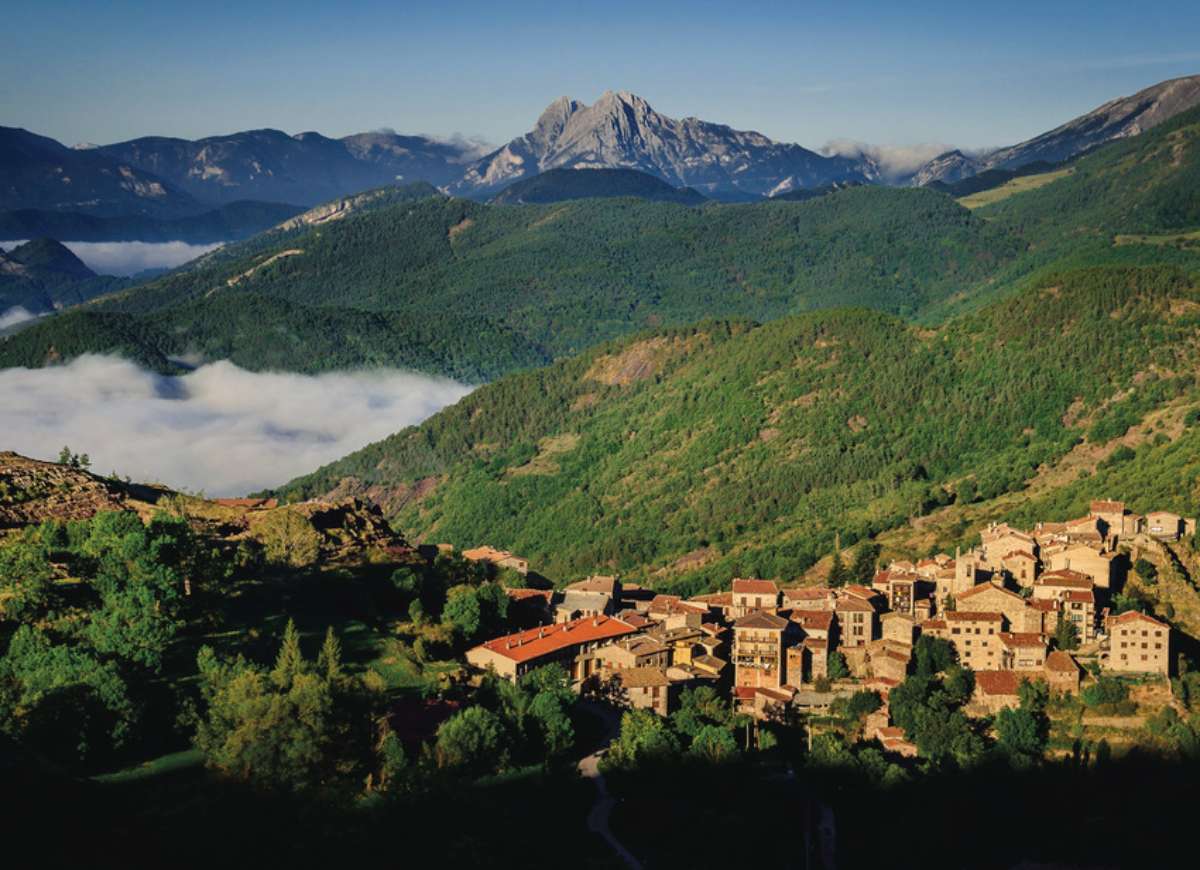Spain Sustainable Tourism
Regenerative tourism: Connecting with Catalonia

Known for its rich cultural heritage, picturesque vistas and vibrant cities, Catalonia is reshaping the tourism industry by guiding travellers towards a thoughtful and sustainable worldview packed with unforgettable experiences.

In partnership with

Known for its rich cultural heritage, picturesque vistas and vibrant cities, Catalonia is reshaping the tourism industry by guiding travellers towards a thoughtful and sustainable worldview packed with unforgettable experiences.
The Catalonia Regenerative Tourism approach encourages profound connections with the unique essence and character of each location – viewing regions, cities, and landscapes as living organisms shaped by enduring interactions between people and their surrounding ecosystems.
A radical rethinking of contemporary tourism practices, the approach centres the individual traveller and their relationship with the environment, culture, and local community to create meaningful memories and positive connections.
“The aim is for the traveller to transform their vision of the world, become aware of their part in the constantly evolving natural and built environment, and connect deeply with the local host community and region,” says Mr Raül Guerra, Asia-Pacific Regional Director of the Catalan Tourist Board.
Regenerative tourism covers a broad range of experiences, destinations and choices. Here are some of the best ways you can engage with regenerative tourism in Catalonia:
1. Accommodation
From boutique hotels to rustic farm stays, Catalonia offers a range of eco-conscious accommodations. Devoted to reducing their environmental impact, these properties consider everything – from energy-efficient amenities to locally sourced goods for you to enjoy.
For an idyllic natural retreat, consider renting a wooden bungalow or pitching a tent at Camping Molí Serradell in Campdevànol. Nestled in the Sant Llorenç valley, the property is a historic 1738 flour mill enveloped by the pristine Merdàs and Prunés rivers in a stunning panorama of mountain living. The charming property boasts an organic restaurant, lush garden, and friendly farm animals for a peaceful and eco-friendly escape.
2. Local, organic cuisine
Catalonia – named World Gastronomic Region in 2025 – has a legendary cuisine founded on three pillars: local, organic and seasonal.
Food and wine adventures, such as Delta Polet, transport visitors back in time to the Ebro Delta National Park to discover the ancestral traditions and organic practices of rice cultivation, concluding with a delightful local fideuàs dish. Explore the origins of these ingredients and participate in cooking classes, like the traditional calcotada with locally sourced Calçots, to truly experience the region’s unique flavours at their finest.
3. Agricultural tourism
Hands-on regenerative farming experiences offer a new way to explore Catalonia’s rich culinary and agricultural heritage.
Engage with local farmers to cultivate organic produce, learn about the sustainable farming techniques among the vineyards and olive groves, or become a ‘Fisherman for a day’ in Cap a Mar with the Barceloneta fishermen’s organisation – an immersive experience which aims to share the centuries-old legacy of artisanal fishing and marine environment conservation.
4. One with nature
Catalonia’s many protected nature reserves capture some of the most pristine natural environments in the world, from the jaw-dropping Montserrat mountain range to the unique wetlands of Delta de l’Ebre.
Delve into the world of ecotourism, where activities like bird watching, scenic hikes, and expert-led wildlife expeditions serve to protect and rejuvenate these precious ecosystems.
Immerse yourself in an eco-kayaking experience led by Cap de Creus Natural Park’s certified guides, offering insights into the park’s flora and fauna as observed from the water.
5. Traditional craftsmanship
Who better to learn from than Catalonia’s local craftspeople? Unearth Catalonia’s rich artisanal heritage and celebrate the time-honoured traditions – spanning from pottery and ceramics to intricate textile weaving and masterful woodworking.
For a unique experience, immerse yourself in the world of Sastres Paperers, where the art of handmade paper is lovingly preserved. Participate in artisan paper-making workshops, delving into the soul of the Farga Paper Mill; a historic paper mill in the Girona region boasting over 330 years of heritage.
6. Voluntourism
For the regenerative tourist, contributing to the local community provides a rewarding and ethical path to exploring the hidden gems of Catalonia. Whether it’s lending a hand to beach clean-up campaigns, reforestation projects or educational initiatives, the chance to leave a positive impact on Catalonia’s landscapes and communities is unlike any other.
Voluntouring gives travellers the opportunity to do and see a little of everything. Spend time at a sustainable olive farm, work with an eco-friendly B&B, or learn about permaculture, marine conservation and food rescue in Catalonia.
7. Heritage tours
Guided tours of Catalonia’s rich history, cultural landmarks, and architectural wonders provide the perfect opportunity to practice responsible tourism and experience the best that Catalonia has to offer.
These journeys support the preservation of significant heritage sites while providing travellers with meaningful insight into the area’s geology, flora, fauna, history, and spirituality. Explore Montserrat on the ‘1000 Years of Spirituality, History and Art’ tour or head to the nearby hills and discover the hermitages in the Montserrat natural park.
8. Sustainable transportation
Known for its eco-friendly transportation options such as electric bikes, intercity trains, and carpooling, Catalonia’s environmentally conscious transport practices can drastically reduce the environmental impact of touring.
The region boasts over 6,000 kilometres of roads and pathways, making cycling one of the most sustainable ways to explore. For those looking for electric alternatives, Seat Mo specialises in a range of electric scooters, motorbikes, and cars for convenient travel throughout Catalonia.
Engaging in regenerative travel offers travellers a chance to leave a lasting positive imprint on the environment and local communities while creating unforgettable memories in one of the world’s most beautiful places.
The year-round Grand Tour of Catalonia contains a series of itinerary suggestions which seamlessly interweave cultural landmarks, natural landscapes, and mouth-watering culinary experiences – immersing travellers in the region’s rich customs, traditions, and vibrant communities.
Explore the Grand Tour of Catalonia.
Latest Articles
Don't miss the latest from Luxury Travel
